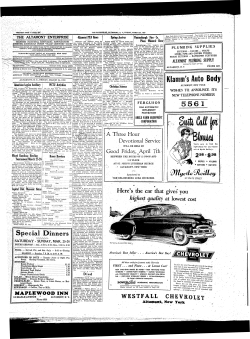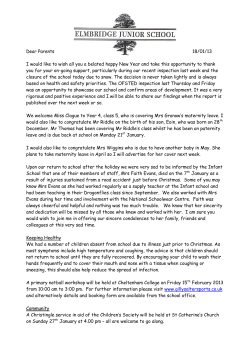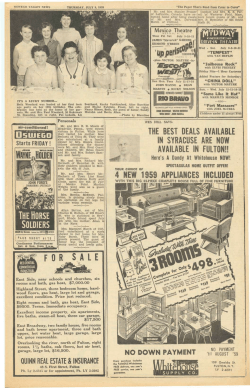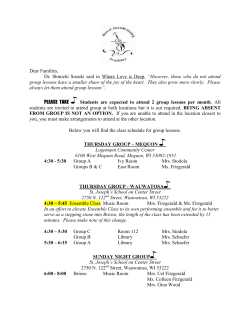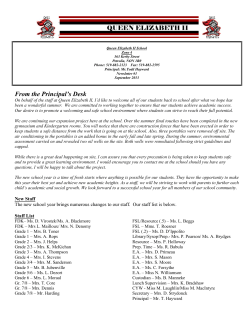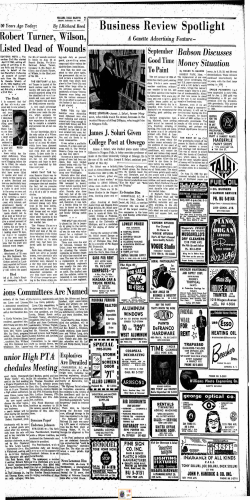
Document 64743
Myrlie Evers Remembers: 25 YEARS AFTER ASSASSINATION OF CIVIL RIGHTS LEGEND Widow of Medgar Evers recalls life with martyr, reflects on career, children, second husband Bv Marilvn Marshall tive in various civic and political groups. Mrs. Evers, who still uses her late husband s ers' world was shattered. last name out of respect The wife of NAACP Misfor him, also has a new sissippi field secretary career. Formerlv' conMedgar E v e r s , she sumer affairs director for watched in horror as her the Atlantic Richfield 37-\ear-okl husband la\ Co., last June she was bleeding on the doorstep appointed one of the comof their Jackson, Miss., missioners of Los Auhome, the victim ofa gungele.s" powerful Board of shot wound to the back. Pxilîiic \\ orks, and is the A man who constanth first Black woman to hold lived with the threat of the position. danger. Evers was ambushed after returning Though she is pleased from an NAACF meeting \\ith the way things around 12:30 a.m. Mrs. turned out, she still bears Evers v\-as the first to rush the emotional scars of her to his side, and wu.s folhusband s assassination. lowed by their three including the fact that the >• o u n g ch i 1 d r e n wh o White man arrested for pleaded, "Please Dadd\', the crime, Bvron de la please get upl Near the Beckwith. wa.s eventual!)' wounded ci\ il rights leadfreed after two trials held er was a bundle he had in Mississippi resulted in dropped containing Thung juries. No one else shirts that read. "Jim was ever charged vvith the Now a commissioner ol tin.- Board of Public Works in Lo.s .A.ngelfs, Myrlit- Evers Crow Must Go." assassination. has achieved personal and professional fulfillment in California since the shocking murder of her husband. Medgar E\ers (lielow) in .Mississippi in 1963. She says it s hard to beFifty minutes after he lie\ e 25 \ ears have passed was shot, Medgar Evers since the tragedy. "No. it doesn't seem died at the Uni\ersity of Mississippi that long," she says. "For one thing, Hospital. Blacks across the country Medgar is with me constantly. Not a wert' shocked and angered b\' the killda\ passes when I don t think about ing, which occurred at the height of the him. or something he said or did." Ci\ il Rights Movement. Mrs, E\ers, 05. has been in and out Devastated b\ her husband s murof the spotlight since her husband's der. Mrs. Evers. then 30. began the death. After lea\ ing tbe South she enslow, painful process of putting her life rolled at Pomona College in Claremont back together, Now. 25 > ears later, she and earned a bachelor's degree in has finalK- come through her tragedy. sociology in 1968. For the next two A >ear after her husband s death, she years she was assistant director of and her children mo\ ed to Claremont, planning and development for the Calif., and for the past nine years she Claremont College system, and while has li\ed in Los Angeles. She has rethere became a contributing editor for married, her children are grown, and a women's magazine until 1974. .^fter she is the grandmother of three. She serving as vice president of an advertisremains socially conscious, and is acURING the early morning hours of D June 12. 1963." Myrlie Ev- 108 EBONY • June, 1988 Continued on Page 110 MYRLIE EVERS Visits to the field a n i^dm mini for Mrs. K\frs. and above the fo in m is s i on er checks on a profiling operation in which amillint; machine removes asphalt from the road bed prior to resuHacing. .\i right she appears with Mayor Tom Bratlle\ during the aniiduntement of a city flean-iip program. (The mayor donned a street maintenance uniform for the occasion). Below she is shown with fellow commis.sioners Dennis Nishikawa, Edward .\vila, Kathleen Brown and Steve Harrington. ing firm for two years, she joined Atlantic Richfield in 1975. In the meantime, she strived to keep her slain husband's memory and dreams alive. She wrote a book, ForUs The Living, which chronicled their lives. Published in 1967, it was the subject of a 1983 made-for-T\' movie starring Howard Rollins and Irene Cara. Long a believer in Black political power, Mrs. Evers made two unsuccessfiil bids for public office: one for Congress in 1970 and one for the L. A. City Council in 1987. She received another chance to become involved in local government when she became Los Angeles Mayor Tom Bradley s appointee to the fivemember Board of Public Works, the city s only full-time paid commission. In charge of one of the largest city departments (5,000 employes), the commission awards contracts for millions of dollars in improvements, and is responsible for such services as waste disposal and street maintenance. The job keeps Mrs. Evers on the go. She often works 10-hour days, and will meet with staffers or local officials one minute and visit a water treatment plant the next. Once she leaves her City Hall office, there is usually a community meeting or event to attend, At home, she looks forward to spending time with her husband of 11 years, Walter Williams, a retired longshoreman. Mrs. Evers, who says she has been "blessed twice" in both of her marriages, says she admires her second husband for his ability to handle the pressure of being married to the widow of a martyr. "That's why my hat goes off to Walter, ' she says. "He's a very strong man who has been very involved in the civil rights struggle here, so he had a great deal of respect and admiration for Medgar. ' Her children all live in Los Angeles. Darrell, 34, is a graphic artist and father of a son, Kynan, Reena EversEverette, 33, is an instructor with an airline and has two children, Daniel and Cambi. James, a 28-year-old photographer (who took the color photos for this article), is single. "My children turned out to be wonderfully strong and loving adults," she says proudly, "It has taken time to heal the wounds [from their father's assassination] and I'm not really sure all the wounds are healed. We still hurt, but we can talk about it now and cr>' about it openly with each other, and the bitterness and anger have gone. An eloquent, gracious woman with a \''' • June, 1988 Continued on Page I M Mrs. Evers and hBr second husband, \\ alter \\ illiam.s. h;n e been married 11 years, and slie says he is an extremely supportive spouse. She is very close to her Lliildren ^\. to r, i. Dairell. Reena (who is expecting their third child) and James. MYRLIE EVERS c. warm smile, Mrs. E\ers has always talked candidly about the anguish she feltafterher husband s death, and how her bitterness e\ en "kept me going ' for awhile. In a 1965 EBONY cover story she wrote titled "'Why I Left Níississippi," she said that, after moving to predominantly White Clareniont, "I had to remember m\" old feeling of hate in Mississippi, and how even.' now and then it reared its head." She no longer has that feeling of hate, and whenever she returns to Mississippi, she is pleased to see that the segregation and discrimination that once existed there have diminished. She says one da\, she may even return there to live. ORN Myrlie Beasley in Vicksburg, Miss., Mrs. Evers says she lived a 'sheltered life." Her parents were divorced when she was a child, and she B was reared by her grandmother, Annie McCain Beasley, and an aunt, Myrlie Beasley Polk. Now deceased, both were teachers. Musically talented, she enrolled at Alcorn A&M in 1950 as an education major and a music minor. On her first da\' on campus she met fellow-student Medgar Evers, a member ofthe football team and a \vise and w^orldly Army veteran. She recalls that, "He was strong, responsible and someone you could count on," she says. They were married on Christmas Eve in 1951. Mrs. Evers left school before graduating while her husband finished Alcorn in 1952. After a stint as an insurance salesman, he became active in the NAACP, and was appointed field secretary' in 1954. He established a state office in Jackson, and his wife became his secretary. She says that from the beginning. they were aware of the dangers. Threatening phone calls were common, the family stayed away from windows at night, and Evers taught his children to fall to the floor whenever the\ heard a strange noise outside. A few weeks before his death, a firebomb was thrown at the family's home, and Mrs. Evers put out the flames with a garden hose. "We lived with death as a constant companion 24 hours a day," she recalls. "Medgar knew what he was doing, and he knew what the risks were. He just decided that he had to do what he had to do. But I knew at some point in time he would be taken from nie." Though she tried to prepare for an assault on her husband, her plans went awry when it actually happened. "It took the longest time for our doctor to convince n:ie that I could not have saved him if only I had stuffed his chest cavity with cloth [to stop the bleeding]." MEDGAR EVERS: THE UNSUNG HERO EDGAR Riley Evers was born in Decatur, Miss., in 1925. His father, James, operated a small farm and worked part time in a sawmill, and his mother, Jessie, worked as a domestic. He walked 12 miles each da\- to attend high school in nearby Newton, Miss, .\fter leaving high school he entered the Army, serving in World War II. He returned to Mississippi to work. In 1946, he and his brother, Charles, and four other young Blacks dared to register to vote. Whites in the area threatened Evers' parents, and when the brothers went to vote, they were turned away by a crowd of 15 to 20 armed White men. In 1948, Evers entered .\lcom A&M College in Lorman, Miss., as a busi- M •- 114 ness administration major. He was a member of the debate team, college choir, the business club, football and track teams, and editor ofthe campus newspaper and yearbook. After completing his studies and working as an insurance salesman, he began organizing chapters of the NAACP. In 1954, he became the first Black to appK- to the Universit\ of Mississippi but was denied admission. By this time, he was the leading candidate for the new job of state field secretary. For the next nine years he was in the forefront of the civil rights struggle in the state, in areas such as voting rights and the desegregation of educational institutions and public facilities. Evers knew all along his life was In danger. and shortly before his murder, he sensed death was near. Immediately after his assassination on June 12, 1963, Blacks in Jackson held demonstrations protesting his death. His fiuieral was held June 15, with more than 4,000 people attending. He was buried in Arlington National Cemetery on June 19. His brother Charles replaced him as field secretary, and later became mayor of Eayette, Miss. On June 23, a White fertilizer salesman, Byron de la Beckwith, was charged with the ambush murder. He stood trial twice in 1964, but neither jury could agree on a verdict. He ran for lieutenant governor of Mississippi in 1967 and was defeated. EBONY • June, 1988 Continued on Page 116 SILL ÎOSBY: n Words And Pictures MYRLIE EVERS she has long put her fear of danger the credit or recognition that be debehind, although she did receive a serves for his work, and I find tbat scare while running for City Council very, very unfortunate." She adds that last year. During a candidates' forum, is one reason why she admires Coretta she was approached by a man claiming Scott King. "I have tremendous reto be a relative of Byron de la Beck- spect for Mrs. King for devoting ber with. He was apprehended and life to Martin's memory and what he warned hy police to stay away from stood for," she says. Mrs. Evers vi'ill always remember her. Since no one was ever punished for the crime, she says simply, "I do not her late husband as a "good and decent" man, and one who encouraged feel justice was done." Another of her concerns is the num- her to be strong. Sbe tbinks she ber of people who have either forgot- heeded his words of encouragement. ten or never knew about her husband's "My trials and tribulations bave made life and death. "Medgar does not get me a much stronger person," she says. ISBN 0-87485-084-3 By Robert E.Johnson Associate Publisher/JET Y OU have seen and heard him on TV's Emmy Award-winning The Cosby Show" as Dr. Cliff Huxtable—husband and father of five children. Now you can see and get to know firsthand TVs most watched and best loved family man—Bill Cosby, the real life husband and father of five children. When you read Bill Cosby: In Words and Pictures, you will see him in 192 pages of exciting color and black and white photos, and read his revealing words about his TV Huxtable family, his real life Cosby family, his special friends and outfoxed foes. Bill Cosby: In Words And Pictures reveals : • He supports with time and money Black causes. • He tells why there is a need for Black heroes. • He idolizes his wife, rears his children with concern and "Love in its proper place." On sale at your local bookstores In an early family photo, M e d - gar and Myrlie Evers visit a Civil War battlefield in V'icksburg, Miss., with Reena and Darrell. She describes her late husband as strong, determined, committed, gentle and caring." Below, she consoles Darrell during the slain civil rights leader's funeral. Darrell was nine when his father died, Reena was eight, and James was three. Copyright © Johnson Publishing Company, Inc. All Rights Reserved. Content may not be copied or emailed to multiple sites or posted to a listserv without the copyright holder's express written permission. However, users may print, download, or email articles for individual use.
© Copyright 2026


